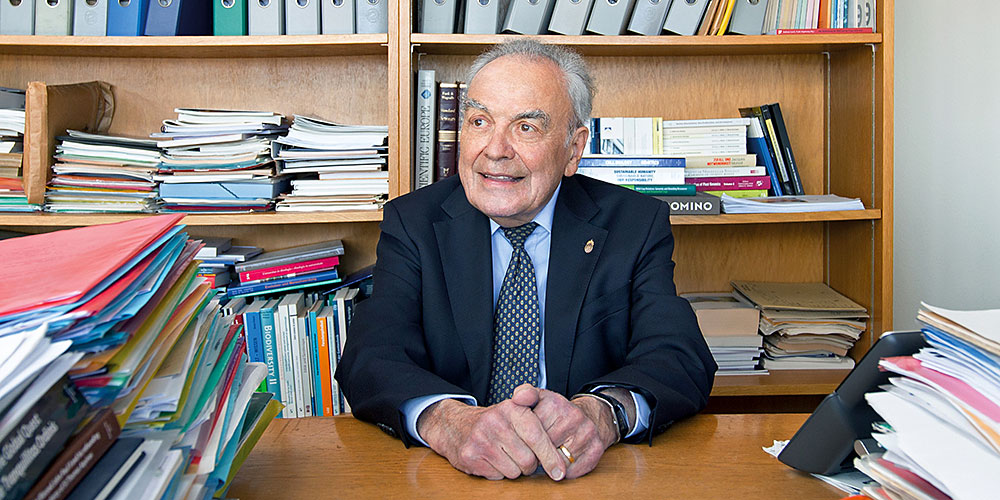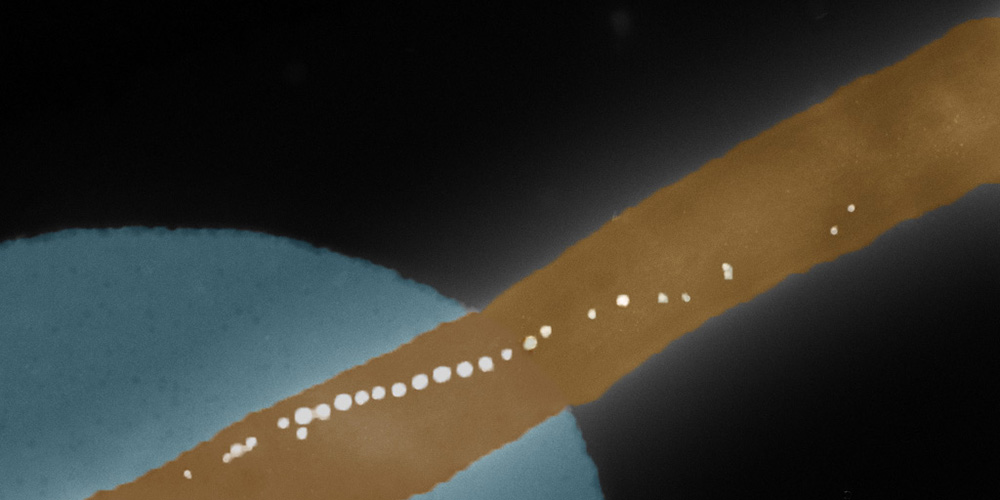Symposium in honor of Nobel laureate Werner Arber
On 28 August 2019, the University of Basel’s Biozentrum hosts a scientific symposium to honor its Nobel Prize laureate, Prof. em. Dr. Werner Arber, on the occasion of his 90th Birthday. In addition to a review of the lifetime achievements of the microbiologist and discoverer of bacterial restriction enzymes, two scientific lectures will highlight the newest developments in the field of genome editing.
23 July 2019
The Biozentrum cordially invites you to the celebration for Werner Arber, honoring one of its founding members and winner of the 1978 Nobel Prize in Physiology or Medicine, within the framework of a scientific symposium. The lectures will be held by Prof. Martin Jinek, Associate Professor of Biochemistry at the University of Zurich, and Prof. Marek Basler, Professor of Infection Biology at the Biozentrum of the University of Basel.
Prof. Werner Arber is regarded as a pioneer in molecular biology research of the structure and function of DNA, as well as the interactions of genes and proteins. With his discovery of the molecular scissors of genes, so-called bacterial restriction enzymes, he not only laid a foundation for today’s molecular biology but also paved the way for various research areas at the Biozentrum. This has contributed greatly to the Institute’s international renown. In 1978, Werner Arber, together with the American Daniel Nathans and Hamilton Smith, was awarded the Nobel Prize in Physiology or Medicine. Werner Arber is a member of the Pontifical Academy of Sciences, over which he presided from 2011 to 2017. On June 3, 2019, Werner Arber turned 90 years old.
Prof. Martin Jinek investigates how RNA-protein complexes control gene expression and protect bacteria from genetic intruders such as viruses. In his lecture “CRISPR genome editors: from bacteria to biotech” the CRISPR-Cas9 pioneer will share insights into the molecular mechanisms of the CRISPR-Cas-Systems.
Prof. Marek Basler will speak about the function of a bacterial injection apparatus, the so-called type 6 secretion system, in his lecture “Structure, dynamics and function of a bacterial nanomachine”. Using this nanosized speargun, bacteria inject a cocktail of toxic bacteria into bacteria and eukaryotic cells.
The symposium in honor of the Nobel laureate Werner Arber will take place on Wednesday, 28 August 2019, in Lecture Hall 1, at the Pharmazentrum, Klingelbergstrasse 50, Basel. The symposium starts at 4:00 pm, followed by an Apéro at 5:30 pm. Due to limited seating available, please register until 18 August 2019.


